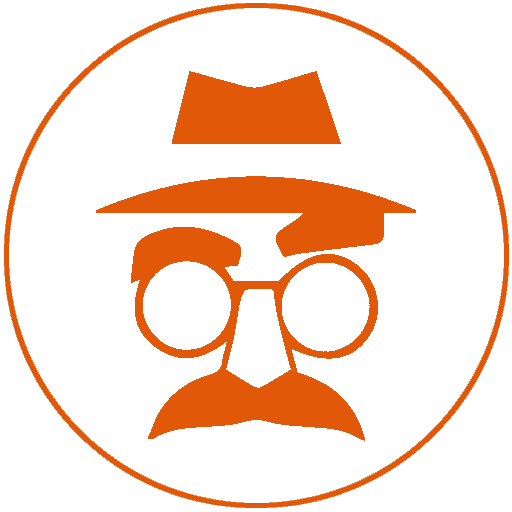This is a text automatically translated from Italian. If you appreciate our work and if you like reading it in your language, consider a donation to allow us to continue doing it and improving it.
The articles of Cassandra Crossing I'm under license CC BY-SA 4.0 | Cassandra Crossing is a column created by Marco Calamari with the "nom de plume" of Cassandra, born in 2005.
An excellent article by Cassandra from a few years ago on social networks.
This article was written on July 27, 2019 from Cassandra
Cassandra crossing 440/ Information overload, social overload

The Internet once caused an information overload, today it causes a much more dangerous social overload.
In the early '90s we began to talk about "Information Overload", an information overload that could affect those who used the Internet intensely at the time, creating psychological and other problems similar to drug addiction.
Cassandra can assure you that this is true, as she too was affected by it.
“Impossible – the 24 well-informed readers will say – at that time they hadn't even invented the web, and there were only emails and newsgroups.”
Very true, and I add that at the time the backbone traffic of the network at the time, which was called ARPANet, was estimated at 40 to 100 Mb per day (I repeat, megabytes per day); one year of all Internet traffic on your smartphone.
However, the signal-to-noise ratio of the time was so high that it was more than enough to clog up a mind — think about reading 80 novels a day, or even just a couple….
Cassandra, who used i newsgroups widely, both for work and otherwise, she was fully affected.
The desire to read everything that passed, even in just a handful of groups, took hours every day; they were simultaneously beautiful and useful things, but both work and free time suffered.
A paradigm shift was needed, not "read everything that came along", but "have no problem discarding almost everything without reading it".
Today it seems like an easy thing, even elementary, but back then it was about inflicting violence on oneself in order to break an addiction that was now objectively impossible to sustain.
Like many others, with crude, artisanal means and infinite guilt, Cassandra made it and got out.
The solution was (now it seems obvious) to select the push type information a priori, avoiding registering on a channel just because "they could talk about interesting things", and above all discarding the stuff inside a selected channel but which you don't have the time to read without regrets or guilt.
Now they are obvious, but 30 years ago it was acting against nature... and sometimes you miss a beat even after 30 years. Other than Alcoholics Anonymous.
Today information overload is what is called a non-problem, it is taken for granted and ignored by any kid with a smartphone.
The information that travels is mostly chat, or social media that works like chat.
The signal/noise ratio is very low; very short messages, usually of no general interest or of long duration.
Useful in the short term and harmful in the long run just like disposable plates.
It is very difficult to find a message with interesting content and written in good Italian (or good English, or good French) of a few hundred or thousand words, like the stories or emails of the past.
However, for better or for worse, problem solved.
“There is an overload on the Internet today” (a phrase with a vaguely Marxist flavour); it affects the vast majority of navigators, causes a very strong addiction, distorts perceptions and induces an overestimation of one's abilities; it's the overload from social networks.
This is a much more insidious and persistent phenomenon than simple information overload, for a series of reasons that are all known but which are often, perhaps involuntarily, but also not, ignored.
Let's try to make a small list.
Social media, used in small doses, can be not only cute and fun, but even useful; for example, they allow you to maintain long-distance relationships and mend those that have physically broken down.
Social media is the most capitalized and most successful industry of the third millennium, where all digital and big data business must somehow transit.
Since the economic value of social media is proportional to the number of users, the companies that manage them, to maximize their profit, must not only lower the barrier to entry and use, but make them capable of generating addiction and dependence in all possible ways , in order to maximize not only the adoption by new users but also the retention of old ones.
In order not to end up like the tobacco industries, which in the past were hit hard because they chemically inserted factors into tobacco that increased addiction, the companies that manage social media must make the mechanisms that generate addiction as imperceptible as possible, until to actively deny its existence.
Since the acquisition of the maximum possible quantity of users' personal data is the core business of any social network, but it is heavily regulated and limited by the legislation of national states, this work of acquisition, use and transfer of data must in turn be made as hidden as possible from users, and must be made as little counteractable as possible by legal means.
The result is that any social community must seek to maximize the amount of data it can glean from each user through three means; increasing the daily time of use, increasing the number of different sources of personal data intercepted (for example georeferenced or biometric data), and finally increasing the number of non-personal data but of other people that users pour into social networks.
It is therefore not surprising if phenomena that perhaps would emerge in a limited way anyway are artificially enhanced to the point of not being social problems, but social ones, and rise to global phenomena.
Echo chambers, hate speech, information bubbles, social self-isolation are not toxic waste generated by social communities, but carefully cultivated products that are indispensable for a profitable business.
Those who incite to fight against these epiphenomena as if they were "extreme" cases that can be canceled or eradicated through education and training of users, or with legal limitations imposed on companies that manage social media, they are mostly "useful idiots" without any knowledge of the topic of which they speak of, with a minority, however very influential, of people in total bad faith.
In conclusion, if on the one hand information overload is due to the involuntary consequences of an ever "new" medium such as the Internet, social overload is a non-emergent phenomenon, but one consciously sought and cultivated by actors in possession of economic resources, and therefore also policies, almost unlimited, and once within the reach only of national states.
The infogeopolitical chessboard in which this game is played contains other "bad guys"; powerful actors known or almost unknown; maybe in September Cassandra will write something about it.
Marco Calamari

Video column “A chat with Cassandra”
Cassandra's Slog (Static Blog).
Cassandra's archive: school, training and thought
This tag @loyal alternatives is used to automatically send this post to Feddit and allow anyone on the fediverse to comment on it.
Join communities
If you have found errors in the article you can report them by clicking here, Thank you!







